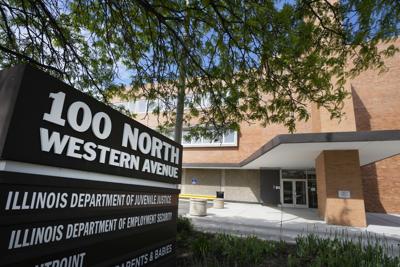SPRINGFIELD, Ill. (WAND) — The Illinois House passed a bill Saturday to raise the minimum detainment age for minors from 10 to 13 years old.
Sponsors said raising the detainment age can give young people a fair chance and prevent early criminalization.
Detention for 10 and 11 year-olds would stop on July 1, 2026 while detention for 12 year-olds would end the following year. There is a carveout for intense crimes like murder, aggravated sexual assault, and aggravated vehicular hijacking.
"The bill allows for one year to develop the final planning for implementation, building on the great work that has already been done throughout the years by the Juvenile Justice Commission," said Rep. Justin Slaughter (D-Chicago). "Most importantly, this planning phase will create accountability to address service shortfalls throughout the state where identified."
Probation and court services shall document and share on a monthly basis any instance where alternatives to detention failed or were lacking, including the basis for detention, the providers who were contacted, and the reason alternatives were rejected, lacking, or denied. Minors under the age of 13 may be held accountable through a petition for authoritative intervention or community mediation.
The legislation also calls for a Child First Reform Task Force to review and study the current state of juvenile detention centers across the state. The task force would consider conditions and administration of individual juvenile detention centers, identify the resources needed to consistently meet the minimum standards set by the Department of Juvenile Justice and the Administrative Offices of the Illinois Courts. This group could evaluate complaints coming from within juvenile detention centers, identify best practices to provide detention center care, and propose community-based alternatives to juvenile detention.
The measure also features provisions to ensure youth who commit nonviolent crimes are given a second chance. Lawmakers want the Illinois Department of Juvenile Justice to provide employment opportunities, educational resources, and parental mentorship training for youth who committed nonviolent crimes.
Trauma-informed behavioral health services and assistance applying for public health programs would also be offered starting July 1, 2026.
"Providing youth with the opportunity to develop positive behaviors should be the foundation of our efforts to prevent further crime and violence," said Sen. Elgie Sims (D-Chicago). "Too often, young people veer off the path toward healthy adult lives because they aren't provided the resources they need to stay on track."
Senate Bill 2418 passed out of the House on a 73-41 vote. It now moves to the Senate for further consideration.
Copyright 2025. WAND TV. All rights reserved.











